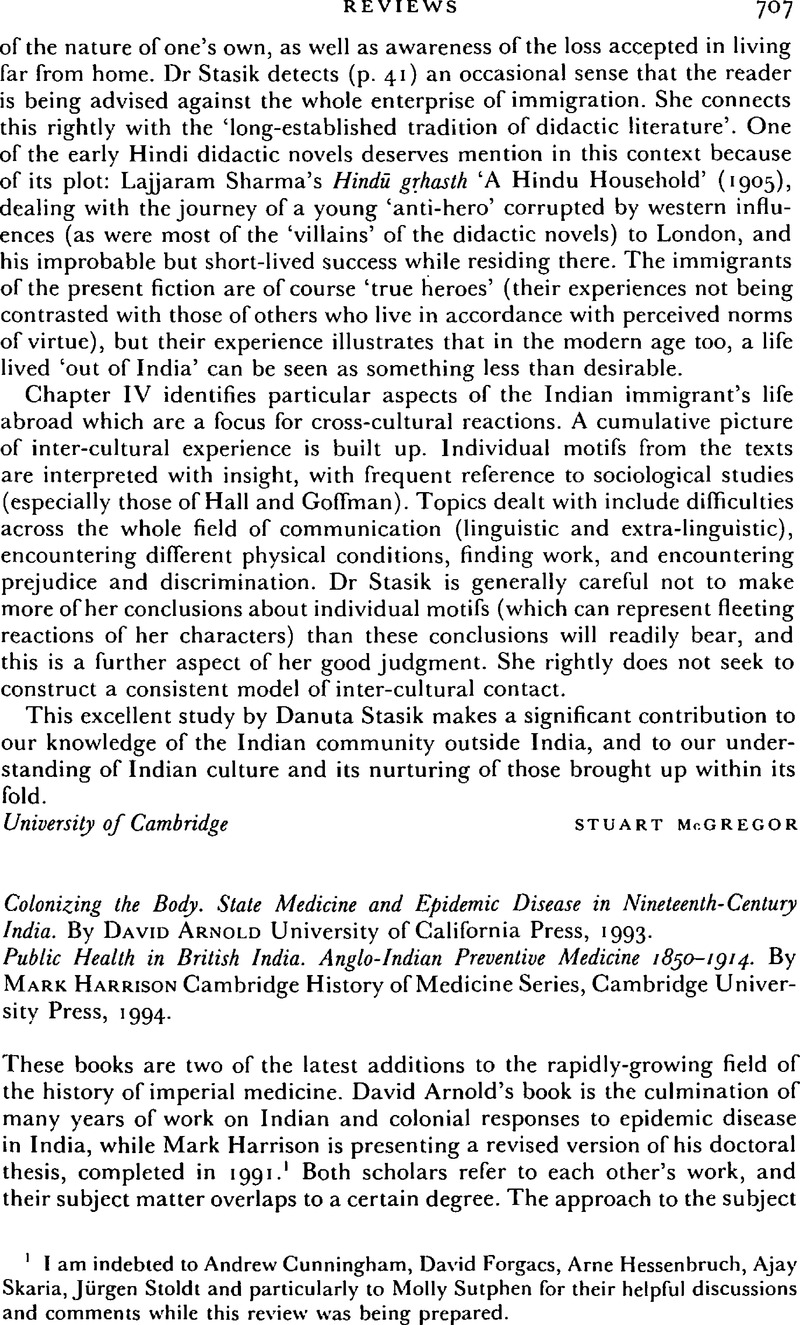No CrossRef data available.
Published online by Cambridge University Press: 28 November 2008

1 I am indebted to Andrew Cunningham, David Forgacs, Arne Hessenbruch, Ajay Skaria, Jurgen Stoldt and particularly to Molly Sutphen for their helpful discussions and comments while this review was being prepared.
2 Mainly adversarial comments on her work appear seven times in Harrison's book, and four times in Arnold's, not including implicit references to ‘nationalist historians.’ See Radhika, Ramasubban, Public Health and Medical Research in India: Their Origins under the Impact of British Colonial Policy. Stockholm: SAREC, 1982;Google Scholar‘Imperial Health in British India, 1857–1900’, in Disease, Medicine and Empire: Perspectives on Western Medicine and the Experience of European Expansion, edited by Roy, MacLeod and Milton, Lewis, London: Routledge, 1988.Google Scholar
3 Ramasubban, , ‘Imperial Health’, 54–5.Google Scholar
4 This trend is best exemplified for the history of India by the series Subaltern Studies, edited by Ranajit, Guha, of which the first volume appeared in 1982.Google Scholar The series has been reviewed by Rosalind, O'Hanlon in Modern Asian Studies 22, 1 (1988), pp. 189–224.Google Scholar
5 The original publications are: ‘Cholera and colonialism in British India’, Past and Present, 113 (1986), 118–51;CrossRefGoogle Scholar‘Touching the body: perspectives on the Indian plague, 1896–1900’, in Guha, R. (ed.), Subaltern Studies V (Delhi, 1987), pp. 55–90;Google Scholar and ‘Smallpox and colonial medicine in nineteenth-century India’, in Arnold, (ed.), Imperialism and Indigenous Societies (Manchester, 1988), pp. 45–65.Google Scholar